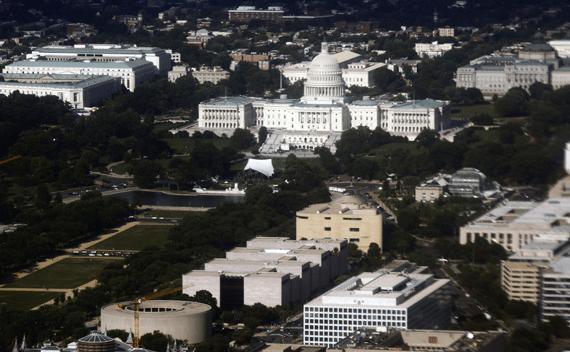Campaign 2012 Roundup: GOP Candidates Talk Middle East Politics
More on:

Republican presidential candidates spoke yesterday to the Republican Jewish Coalition (RJC) Forum in Washington. The conversation went as you might expect: the candidates lambasted President Obama’s Middle East policy, affirmed their unwavering commitment to Israel, and talked tough on Iran.
Rick Perry told the RJC that supporting Israel “is not just a box that I check off for a campaign” but instead “a very deeply personal issue for me.” He sought to calm those who worried that his proposal at last month’s debate for zero-based budgeting for foreign aid would hurt Israel:
America long ago ended the traditional foreign aid to Israel. Strategic defensive aid is what we will continue to be focused on. And strategic aid in all forms under a Perry administration will increase to Israel.
So the new policy looks to be “zero-based budgeting for non-strategic, non-defensive foreign aid.”
Michele Bachmann touted the time she spent working on a kibbutz after high school, saying it “deepened” her love for Israel. She vowed to stop the “delegitimization of Israel” that she thinks Obama has encouraged. A Bachmann presidency:
Will fully recognize Jerusalem as Israel’s undivided capital, and will be the first administration to finally implement the laws passed by Congress requiring the State Department to move the U.S. Embassy to Jerusalem. My administration will also recognize Israel’s 1980 annexation of the Golan Heights and any settlements, which Israel, as a sovereign state, chooses to annex. Simply put, my administration will accord Israel the respect to which sovereign, democratic nations are entitled.
George W. Bush made the same promise back in 2000 to recognize Jerusalem as Israel’s capital. He never got around to doing it.
Mitt Romney argued that Obama has "immeasurably set back the prospect of peace in the Middle East”:
In his inaugural address to the United Nations, the President chastised Israel, but said little about the thousands of Hamas rockets raining into its skies. He’s publicly proposed that Israel adopt indefensible borders. He’s insulted its Prime Minister. And he’s been timid and weak in the face of the existential threat of a nuclear Iran.
Romney’s summary of Obama’s statement on Israel’s borders isn’t quite accurate. What Obama said back in May was that “the borders of Israel and Palestine should be based on the 1967 lines, with mutually agreed swaps so that secure and recognized borders are established for both states.” It’s hard to believe that Israel would agree to “indefensible borders.”
Newt Gingrich, the GOP frontrunner, joined his colleagues in lambasting Obama’s record, particularly “this one-sided continuing pressure that says it’s always Israel’s fault.” He argued that the United States should prepare for a “long struggle with radical Islamists” and called for a “dramatically rethought strategy for the Middle East.” (No, he didn’t actually unveil such a strategy himself.) Gingrich promised that if elected, he would ask John Bolton to serve as his secretary of state. Bolton, who served as U.S. ambassador to the United Nations under George W. Bush among other government posts, is perhaps best known for having said that if the thirty-eight story UN administration building “lost ten stories today, it wouldn’t make a bit of difference.”
Ron Paul didn’t speak to the RJC meeting yesterday, because, well, he wasn’t invited. So he organized his own session on Israel and posted his remarks to YouTube.
Click here view this video on YouTube.
Paul stands by his view that Israel’s dependence on the United States is not good for either country. He thinks that Israel “should be treated as an independent nation and not a puppet of our state.”
The latest polls hold good news for Newt Gingrich. The Quinnipiac University poll has him leading Romney in the crucial swing states of Florida, Ohio, and Pennsylvania. When Quinnipiac pollsters asked Republican voters which candidate would do the best job handling foreign policy, Gingrich won hands down. He was named by 58 percent of Florida Republicans, 51 percent of Ohio Republicans, and 47 percent of Pennsylvania Republicans. In comparison, Romney’s numbers were 15, 11, and 12. No other GOP candidate broke into double digits.
More on:
 Online Store
Online Store